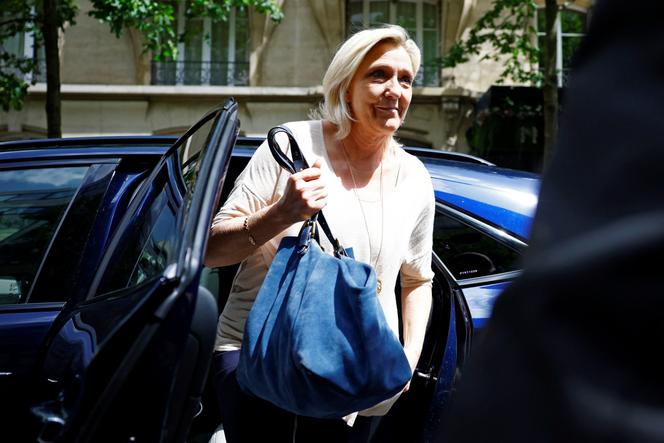


On Sunday, June 9, following the announcement of Emmanuel Macron's dissolution of the Assemblée Nationale, a WhatsApp group chat bringing together dozens of activists from various organizations, such as Les Amis de la Terre, #NousToutes and other collectives, suddenly changed the name of the chat from "No RN at the European elections" to "No RN at Matignon." This signaled a shift in the nature of the perceived danger.
Right from the start of this unpredictable period, climate activists, renewable energy players and scientists have been concerned about the possibility of the far right, which had been campaigning for months against a so-called "punitive ecology" policy imposed by Brussels, coming into to power in France. Head of Greenpeace France Jean-François Julliard recounted how "when we followed the election results, we weren't happy, but we weren't surprised either. Then, when we heard the announcement of the dissolution, we were stunned." Paleoclimatologist Jean Jouzel shared he felt "shaken, frightened, despondent."
The different aspects of the environmental movement are used to dealing with the uncertainties caused by the government. They have reviewed all the initiatives that have been paused due to the current political crisis. The announcement of the delayed third national plan for adapting to climate change will have to wait, as a new waiting period has begun due to the start of the general election campaign on Monday.
The national low-carbon strategy, meant to be unveiled on Thursday, June 13, will have to wait. Also another consultation on the draft multi-year energy plan (PPE) can no longer be launched. So, for several more weeks, France will have to do without energy and climate roadmaps. "Technically, we can try to get everything done by July, but we'll have to see where we all stand by then," said an adviser.
This suspended time has many consequences. "This situation is serious because it creates uncertainty," said Jules Nyssen, president of the renewable energies association. "The government has, for example, made verbal commitments on the development of offshore wind power, but it's not possible to launch a 10-gigawatt call for tenders [equivalent to the power of 10 nuclear reactors] by the end of the year without a PPE." At the end of April, the European Commission called on France to "clarify" the measures it intended to take to meet its commitments in terms of renewable energy deployment by 2030.
The political chapter could close with an even more powerful Rassemblement National (RN). An eventuality feared by environmentalists. In its program for the European elections, Marine Le Pen's party proposed repealing entire sections of the Green Deal for Europe, notably the ban on the sale of new internal combustion engine vehicles in 2035. It also reaffirmed its desire to introduce a moratorium on wind and solar power. However, according to all proposed climate transition scenarios, it is unlikely that the country will meet its greenhouse gas emissions reduction targets without a significant increase in the use of renewable energy sources. "The RN has no ambition in terms of the fight against climate change. It's a vacuum. Either the party's members are climate skeptics and deny the problem, or they ignore it," continued Jouzel.
You have 52.15% of this article left to read. The rest is for subscribers only.
